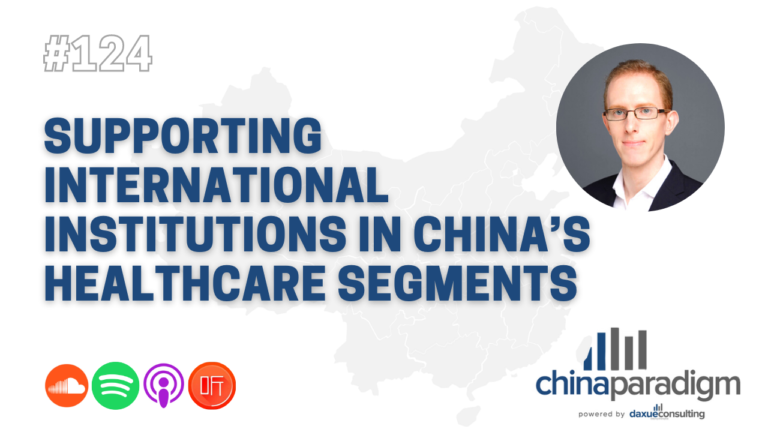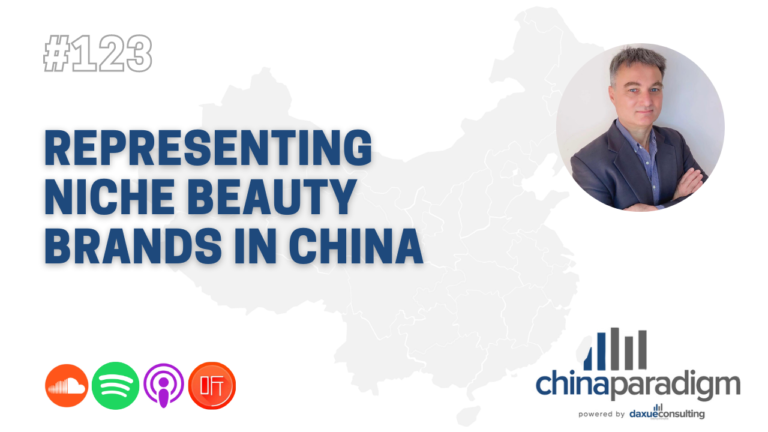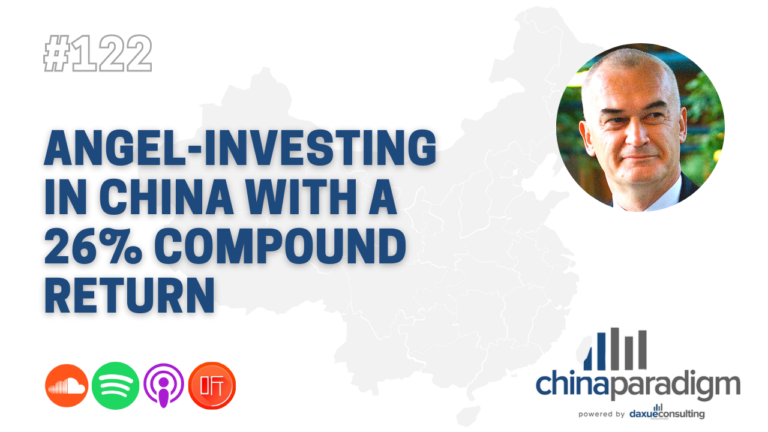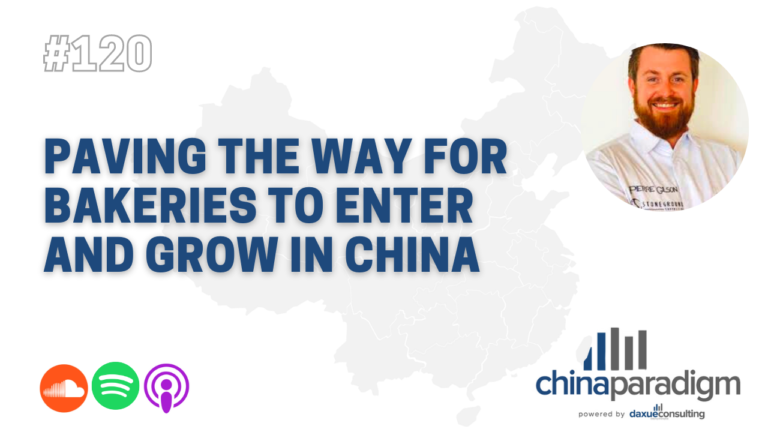China Paradigm interviewed Stephane Torck, founder and CEO of the Asian Market Development Company, to learn more about fashion retail in China, his experience introducing brands to low-tier cities and partnering with local distributors and franchises. You will also learn the key success and failure factors of introducing brands to China.
Stephane Torck, more than 20 years of success in fashion retail in China
Graduated from Tsinghua University where he followed a join management program with HEC Business School in fashion and luxury, Stephane Torck moved to Asia in 1996 with his family. He started a business in the sourcing industry for Camaieu in 1997 from Jakarta.
Stephane Torck was a significant contributor to Camaïeu’s success in the early 2000s, a period during which the company’s share price soared from 17 to 300 euros in three years.
In 2009, he joined the Beaumanoir group and worked for the fashion brand Cache Cache, where he was entrusted with the development of the brand portfolio in China. Beaumanoir is a French fashion group which entered the Chinese market in 2005 and which has six brands including Cache Cache and Bonobo. During his term of office, the number of retail stores increased from 150 to 1100.

In 2016 he founded his own company, AMD, Asian Market Development Company, which specializes in supporting Western firms in Asia. He is also the founder of GED.
Asian Markets Development, a fashion consulting company believing in the benefits of doing business in low-tier cities in China
Asian Markets Development is a company founded in 2016 in fashion consulting in China that works on implementing a fashion brand in China and brand development.
According to Stephane Torck, fashion retail in China is all about the product and that is what he is trying to teach to his clients in China: consumers must be able to understand your product very quickly. And for that, the way you promote it must be relevant and adapted, which is why Asian Markets Development focuses particularly on communication and distribution channels.
Another particularity of this fashion consulting firm in China is that it is convinced that you don’t necessarily have to start your business in Beijing or Shanghai. Stephane Torck explained that each city has its own economic landscape and is not dependent on how Shanghai develops.
‘‘I don’t believe about this concept that people say to be successful in China, you’ll need to be in Shanghai or Beijing as a reference.’’
Thus, Asian Markets Development regularly elaborate strategies for setting up a business in low-tier cities in China.
3 key aspects when entering the fashion retail market in China
Stephane Torck shared with Daxue Consulting the three elements to keep in mind for any entrepreneur in China:
- Remember that China is huge
‘‘When you say China is big, it’s a reality. Nobody can go against this. When you say, they are 1.3 billion people and 700 million young women and perhaps 300 million or 400 million young women. It’s true. Nobody can go against these facts.’’
What Stephane Torck explains is that we must take into account the fact that if China is so big, then the competition will be massive, the partners will be many, and the consumers will be as many as they are different.
- Do it in a Chinese way
The specificities of business and management in China always have to be taken into account. When you run a business in China, you have to bring all your assets coming from your own country and add all the Chinese ways of doing business including their pace.
‘‘One thing that’s important in China is speed: the speed of development, speed of decision, speed of action – because it’s a country which compels on this question of speed compared to France. It’s completely different.’’
- It is the only place in the world where you have a significant interest to do only specific products for Chinese
Until a few years ago, an entrepreneur always thought international when creating his product. The concept should be scalable. But in China it is different, you have to think about the adaptation of the product and the position of your company management.
How to manage the relationship between stores partners and retail e-commerce in China?
Stephane Torck points out that it is not difficult to manage this relationship because when you start working in retail e-commerce in China, it is no longer about the brand but about the coherence between the Chinese consumer’s desires and the product. They have therefore ensured that the entire brand relationship remains between the brick-and-mortar store and the customer.
Thus, each customer can be associated with a particular retail store in China, and when a sale is made online by a customer, a percentage of that sale is given directly to the store in question. It also allows us to keep excellent stock management which is key when operating in fashion retail in China.










